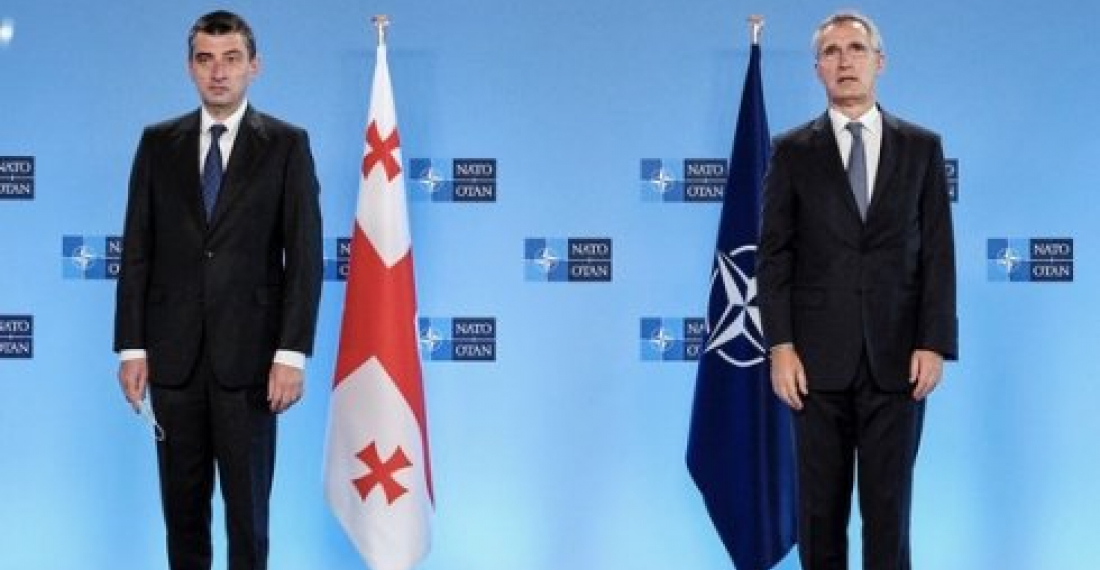Giorgi Gakharia and Jens Stoltenberg discussed ways of maintaining dynamic NATO-Georgia cooperation and the process of integration under the conditions of the global pandemic. The meeting between Georgian Prime Minister Giorgi Gakharia and NATO Secretary General Jens Stoltenberg was held in NATO Headquarters in Brussels.
Discussions at the meeting touched on the renewal of the Substantial NATO-Georgia Package.
It was noted during the meeting that in recent years, NATO-Georgia cooperation has been developing in a highly dynamic manner, and that high-level meetings and the successful conduct of joint exercises confirm NATO's strong support for Georgia's Euro-Atlantic integration.
Mr. Stoltenberg highlighted that earlier this year, Allies agreed to strengthen the NATO-Georgia partnership even further. Speaking about NATO's close cooperation with Georgia on Black Sea security, he said that Allies agreed to share more air traffic radar data, working jointly to address hybrid threats, as well as doing joint exercises in the Black Sea region.
"NATO supports Georgia's territorial integrity and sovereignty within its internationally recognised borders. We call on Russia to end its recognition of the regions of Abkhazia and South Ossetia and to withdraw its forces", he said.
Mr. Stoltenberg said that NATO welcomes the progress Georgia is making on reforms, stressing that Georgia has already made good progress in modernizing the armed forces and in strengthening democracy. "And I encourage you to continue making full use of all the opportunities for coming closer to NATO. And to prepare for membership. We count on Georgia to ensure next month's elections meet the highest international standards. This is important for Georgia, and for NATO", he said.
Speaking after a meeting with the Prime Minister of Georgia Giorgi Gakharia, the NATO Secretary General Jens Stoltenberg said that Georgia is one of NATO's most important partners, contributing to the Alliance's shared security in many ways, including with troops in NATO's training mission in Afghanistan.
The head of the Georgian government thanked Jens Stoltenberg for supporting Georgia's NATO integration process and stressed that the absolute majority of Georgia's population supports the country's Euro-Atlantic integration.
source: commonspace.eu with nato.int







